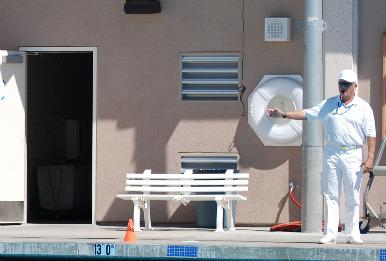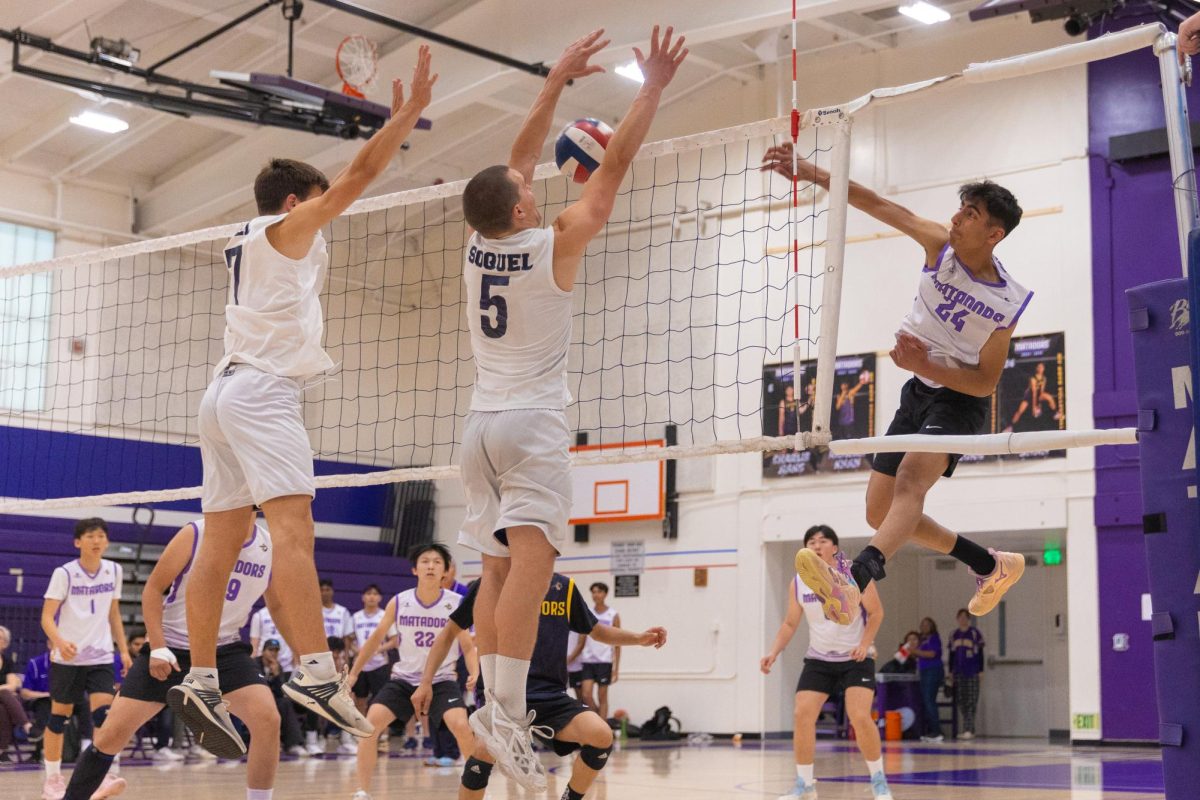 Referees are a key part to any high school sports game
Referees are a key part to any high school sports game
“I’ve been standing for too long, I’m getting old!” He chuckles, then looks up at the clock. Off in the distance you hear a team mom yelling “Here referee! Have some water.” He gladly accepts it and the game continues.
Not only do referees stand for long periods of time, but they control every single game. They make the calls, declare the goals and red card the players. They may not be suited up in athletic apparel, but they are part of the game. They’re the referees—hate them or love them, the fate of the game resides in their hands. Their job  may be unglamorous but it is their duty to keep the sport fair.
may be unglamorous but it is their duty to keep the sport fair.
Though often blamed for the outcome of the game, the referees have a strong knowledge of the sport which is essential for doing their job well. Vigorous training and years of watching and learning the game are necessary to become a quality referee.
“First you have to express an interest through a referee association,” experienced National Collegiate Athletic Association referee and varsity girls water polo coach Don Vierra said, “They’ll pretty much take you under their wing and train you. They’ll send you to clinics, place you with a mentor, you take several tests and you have to do practicals, they’ll put you in games and have people shadow you.”
According to the Central Coast Section website, sports referees for all CCS sports are to be found through Peninsula Sports Management. Through CCS, interested fans and enthusiastic parents can also sign up for classes that will train them to become certified referees. According to most athletes allowing such a open invitation leaves some referees unreliable.
“[Referees] don’t know the game. They just do it for the money. They will listen to parents and other coaches and not go by the rules,” soccer player senior Taylor Francoeur said.
Whether they’re in it for the money or the love of the sport, CCS states that game officials are a critical part of high school sports teams, and whoever wants to become more involved in the sport can become a referee. Biased or not, they’re crucial to the sportsmanship and quality of the sport.
“They keep the game safe and running smoothly,” field hockey player senior Mariel Little said.








